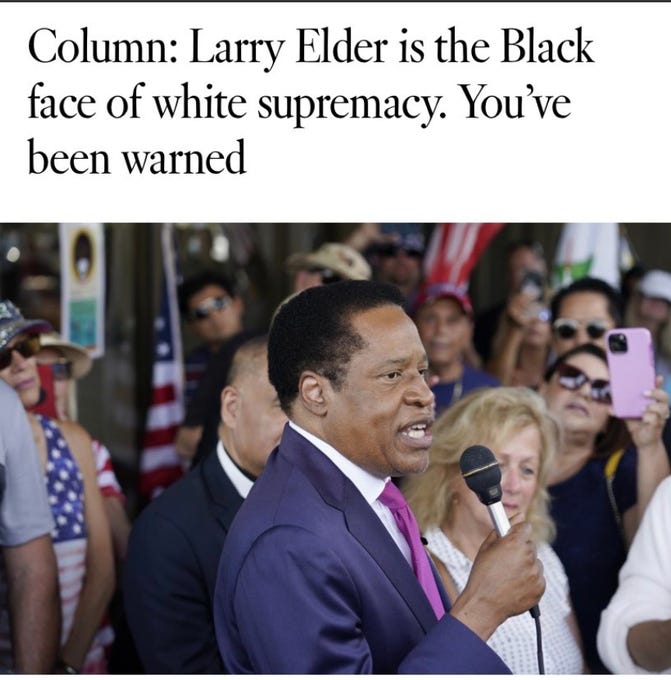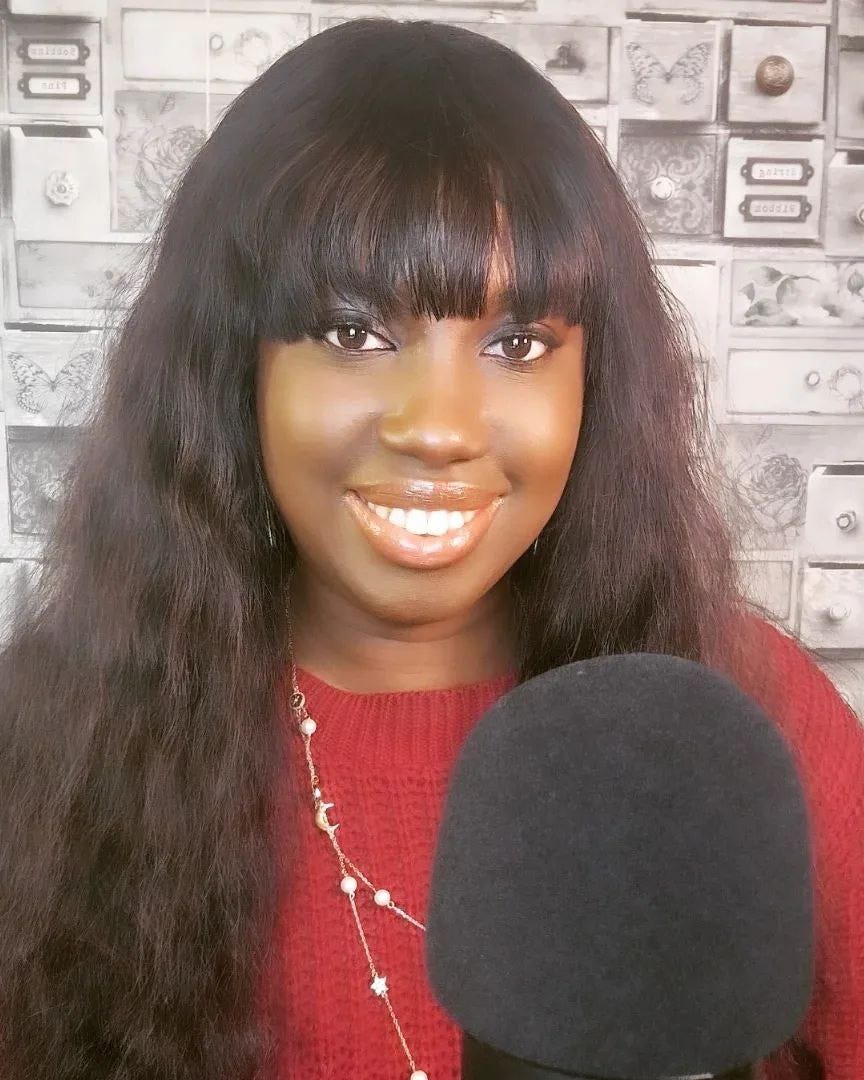Parenting beyond race, Colonial Studies & Why We're Becoming Numb to Racism
Short commentary on recent news and trending conversations by Ada Akpala
Parenting beyond race: How should we raise black children?
UFC fighter Michael Chandler recently sparked a heated discussion around race and parenting when he spoke about his approach to raising his two adopted black sons. "I'm not raising black children," he stated, "I am raising children. I'm not raising black men; I'm raising men."
Thousands found Chandler's comments inspiring and a refreshing departure from the racial consciousness that saturates modern society. However, hundreds more were outraged that a white man of privilege could be so oblivious to the realities of race and “anti-blackness” in our world.
Supporters praised Chandler for viewing his children as individuals first, rather than defining them by race. However, critics argued against his colour-blind parenting approach, pointing out that despite his best intentions, societal realities would constantly remind his children of their race. Others asserted that attempting to raise children as "raceless" individuals could potentially leave them ill-equipped to process and overcome racial challenges.
However, Chandler did not intend to suggest that he would deceive his sons about their race or deny the existence of different skin colours. In the same conversation, he admitted that his young children had already asked tough questions about race. Rather, Chandler's point was that certain core values transcend racial differences—qualities like integrity, strong character, an achiever's mindset, and faith. These are the bedrock principles he aims to impart to his children as he raises them.
So what exactly does it mean to raise black children anyway? One aspect could be teaching them specific cultural aspects associated with their heritage. But the other part, and this is what people really mean when having this conversation, is ensuring the child knows about the struggles, harsh realities, and oppression that black people face in this world.
My Mother never told me I had to work twice as hard as a white person; she simply told me that I was a genius - Lord Tony Sewell
The “race talk," as some call it, revolves around being "honest" about the issues of race in society. It suggests that white people are privileged while blacks are disadvantaged, and that racism is the primary cause of adverse outcomes for non-whites. It often encompasses the idea that white supremacy presents the most significant threat and barrier to success for black people. The focus tends to be on external factors—what individuals can't do rather than what they can, what “their people” couldn’t achieve in the past rather than their accomplishments despite adversity. This doesn't seem like a good way to raise black children. All it does is raise victims.
Propagating the idea to children that the world is stacked against them because of their race and that their biggest challenge is overcoming white oppression is counterproductive. Such indoctrination creates a mindset of limitations rather than empowering them to realise their own potential and agency. This is precisely why Chandler's “colour-blind” approach not only deserves applause but also serves as a model to emulate. The opposite approach is a surefire way to raise children who will become paranoid, helplessly dependent on external circumstances, and trapped in potential self-fulfilling prophecies of failure.
WATCH: Black Success: The Surprising Truth - With Lord Tony Sewell and Sean Corby.
Race and Colonialism Courses in Higher Education
UK university courses on race and colonialism are under threat of “being axed” due to budget cuts. Predictably, this move has sparked criticism, with some arguing that these subjects are 'indispensable' and their removal will hinder our understanding of racism and imperial history.
I always think that the opposite is true: that these courses are potentially harmful themselves as they often distort the understanding of historical events related to race. Frequently, these academic modules are taught with a biased perspective, promoting specific ideologies rather than offering a balanced portrayal of history. This bias has led to the vilification of certain groups and the reclassification of people into oppressor vs. oppressed categories.
Do these courses genuinely encourage critical thinking, intellectual honesty, and open discussion? Are they taught in a way that unfairly burdens individuals today with a sense of guilt or responsibility for past events they did not directly participate in? One must question whether such curricula prioritise objectivity or if they're more about stirring emotions and advocating for particular agendas.
Discourses on racism, empire, whiteness, decolonisation theories and similar topics are hardly scarce in our modern world. Given the significant investment young people make in pursuing higher education, perhaps we should focus on subjects that enhance employability and address the needs of the wider economy.
Regardless of the fate of these programmes, the primary objective for the educational sector should be to uphold academic integrity, prioritise intellectual diversity, and provide students with a well-rounded education. Courses within the humanities should serve as essential tools for promoting understanding, empathy, and meaningful social progress, rather than solely revisiting old grievances. If these classes aim to equip students with the ability to critically analyse the nuances of history and society, avoiding simplistic narratives of the past and present, then they are indispensable. Otherwise, they should indeed be scrapped.
Why We're Becoming Indifferent to Racism
A fraternity at the University of Mississippi has expelled one of its members who taunted a black pro-Palestine protester with monkey noises. In a viral video depicting the clash, a few seconds show James 'JP' Staples hopping from foot to foot and grunting like an ape at Jaylin Smith. As always, disagreements arose online about the video's actual portrayal, with some asserting obvious racial undertones while others claimed the chants related to Smith’s size rather than her skin colour. Regardless, what struck me in the discourse was the number of people who found the chants inappropriate and even racist but simply didn’t care.
Several people have warned us in the past that we would eventually reach this point. For example, in discussing anti-racism, Helen Pluckrose acknowledged that her book "Cynical Theories" contributed to critiques of CRT and other contemporary race theories. Nonetheless, she expressed concern that the backlash against CRT would go too far, evolving into something "anti-woman, anti-black, and anti-LGBTQ," while also promoting white identity politics.
But aside from the backlash against all the “race nonsense,” what I’m noticing now is far worse: there's a growing indifference when actual racism occurs.
And is it any wonder that we find ourselves in this situation? Four main factors have brought us here.
Firstly, there's selective outrage; when actual racial epithets are directed at a person of colour who is conservative, no one in the mainstream world bats an eye. This sends the message that racial abuse is acceptable as long as the "right" people are targeted.
Secondly, there's the rampant misuse and overuse of the term "racism," where even trivial things and incidents have been labelled as such.
Then, we have the fact that white people have also been on the receiving end of racial abuse, discrimination, and violence solely because of their racial identity. But, of course, it doesn’t matter since “it’s not the same,” and since black people have “no power” to be racist, only prejudiced - a distinction without a difference in my view.
Lastly, there are the obvious and notable false claims of racism that have led to a growing apathy towards genuine instances of racism.
So given these factors, how can anyone be surprised that people no longer believe the boy who cried wolf, and even if they do, they no longer care.
WATCH: Helen Pluckrose in conversation with Equiano Project director, Inaya Folarin Iman
Ada is the Head of Content at The Equiano Project. Subscribe to The Equiano Project YouTube channel HERE.







I like this part about how Black conservatives are maligned for not being liberal. No one considers it racist to a) assume all Black people should be, or are, liberal/progressive or b) that any Black person who isnt those things should be subject to violence/ostracization/antagonism. How is THAT not racist?
I also think that a lot of Black people are afraid of white people and will only engage issues that will garner them the most sympathetic support. When a white lesbian couple adopted and murdered their Black children, there was very little sustained outrage about this. (But there was a hyper fixation on their son hugging a cop). When a white man went to Buffalo and murdered Black residents, this is never brought up. But you can buy tshirts that list the names of all the Black people murdered by the police. Meanwhile, Black criminals murdering Black residents is a non-starter for many Black liberals/progressives.
All of it is performative. It is easier to be mad at a white person who doesnt accept Beyonce or want a Black Ariel. Black people are more interested in Black pop culture than Black people. I think the police thing is only salient because historically this has been a problem (ie stop and frisk, the central park 5, rodney king, etc). I have found a lot of Black people prefer to make Black history onnipresent versus adjusting their perspectives. So Black politics is really rooted in the past, not the present or future.
I think the racism thing is interesting. Part of me thinks that Black people dont know what to do about racists and wont commit to any solutions outside of forced inclusivity/diversity training. You call a white person racist and then what? A lot of Black people wont even admit cancel culture exists, which is part of the victimhood narrative that allows Black people to escape accountability and insist on powerlessness.
A lot of Black do endure racism and have no recourse. No one to help them or do anything to make it stop. A lot of Black people are really on our own. Meanwhile, a Black liberal calls herself an activist for pointing out (exclusively) white racism while having no substantive politics that could help actually Black people.
Trotsky warned about putting a minus where our opponents put a plus. Is Ada criticising the work ethic to score political points? In any case today’s race ideologues argue for race quotas, entitlements and compensation for historical injustices, not hard work. Sewell has more in common with the racial uplift philosophy than he admits. Sewell’s charity is called Generating Genius, his focus is racial, on young black boys. If genius is natural why would it need generating? Genius no matter how natural requires hard work. Perhaps success has made Lord Sewell complacent.